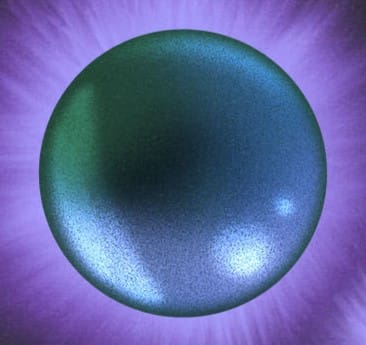Chasing Fridays: Playboi Carti live, a must-hear comp, Maneka Q&A, and more
Niche internet music, mainstream internet music, and some off the grid music.
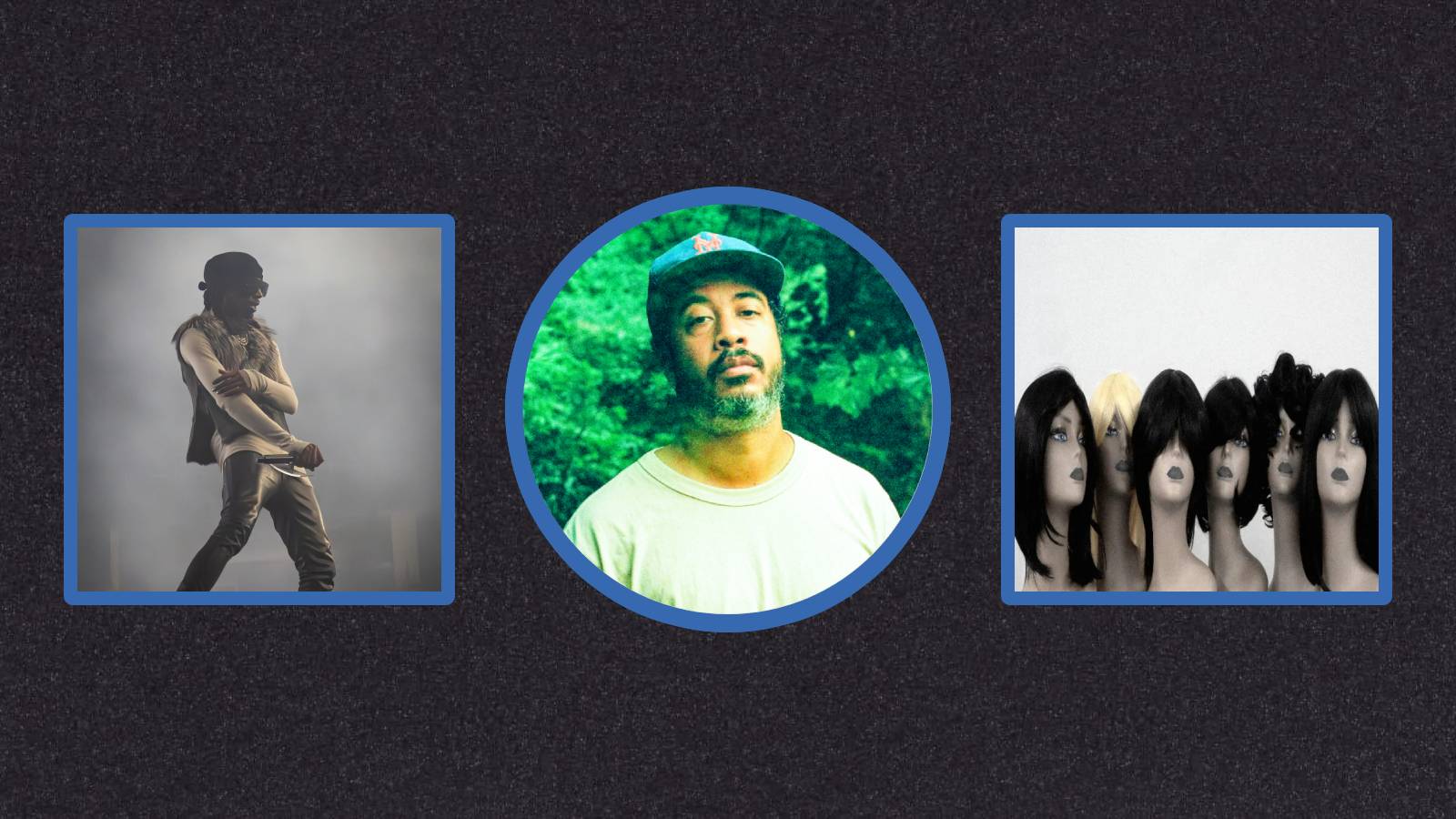
Some news: Chasing Sundays has a hub on Nina. What does that mean? Nina Protocol is a new-ish music website that's kind of like Bandcamp but for Web 3.0. I'm woefully unversed in crypto and blockchain technology, and highly skeptical of all of it, but Nina are basically attempting to create an ethical, egalitarian music marketplace that's focused on human curation, niche editorial, and uplifting independent music. I wrote a few articles for them last year, and have been frequenting their site throughout 2025 because it's one of the best places on the web to discover new music.

Last month, Nina's team asked if I wanted to have a hub – basically their version of an editorial playlist – on their homepage, and I graciously obliged. I'll be treating the official Chasing Sundays Nina hub as a container for new discoveries, including a lot of stuff I write about on this site, but also some stuff I don't cover here. Check out the hub here and spend some time poking around the Nina interface if you, like me, enjoy finding new music on the internet. I feel pretty doomy about the state of music media right now, but Nina gives me genuine hope about the internet's next frontier.
As for this week's Chasing Fridays, I wrote about three new releases – a comp, an album, and an EP – and then I went long on my experience seeing Playboi Carti earlier this week. Lastly, I interviewed Devin McKnight about his band Maneka's new album bathes and listens. It's a lengthy newsletter, but isn't that what you pay for?
Various Artists - Dal 2
I've been spending a lot of time thumbing through Instagram fliers of mixed-bill gigs in L.A., NYC, and London where rappers, singer-songwriters, and electropop outsiders are all being presented as not just musical contemporaries, but scene peers from the same cultural spaces. This gleeful collapsing of genre in the west's trendiest cultural hubs is both a reflection and a driver of the musical landscape that's spawning hybrid sounds like "cloud-rock" and "laptop twee." Dal 2, a genre-jumbling comp created by the NYC promoter/blog/distributor Dalmation, plays like a sampler of this new, post-Soundcloud paradigm of "internet music."
The 11-song mix is a hodge-podge of sounds and touchpoints that had very little proximity to one another even a decade back. For instance, bbpue, whose glitchy cloud-rock I'd locate alongside ear and Find My Friends, contributes a lo-fi cover of The Ready Set's "Love Like Woe" (further vindicating my theory that Breathe Carolina-tier scene-pop is becoming Bushwick Cool). Elsewhere on Dal 2, buzzy emo band Holidays in United States deliver a straightforward acoustic song, while Jackie Extreme rages through mechanized hyperpop that sounds corrupted by a computer virus. Meanwhile, Quiet Light branches out from the heartfelt cloud-rock of 2024's Going Nowhere and into epic ambient in the vein of Malibu.
My favorite cut on the comp is Sta Dormida's "Heartbanks," a brooding slowcore rocker that sounds a bit like Lowercase if they were cursed by an Etsy witch. I'm also intrigued by Ayegy's "My Trembling Spirit," which has the brittle production of an early digicore track produced by fromtheheart, but with more of a deconstructed Jersey club groove. All of these different artists being grouped together on the same comp doesn't mean that they're actively working within the same scene, or that their musical frameworks necessarily align. However, the fact that these artists are being assembled at all marks a decided shift from where the underground zeitgeist was even five years ago, when hyperpop, emo, and cutting-edge indie still occupied separate lanes. I'm sure the winds will shift back toward rugged individualism in a few year's time, but for now, I'm enamored by the bleedover.
Pickle Darling - Bots
Last week, it dawned on me that I committed a glaring oversight with my laptop twee article: I didn't mention Pickle Darling. The New Zealand soloist has been making quirky, MIDI-made twee pop for many years now, and I think their music absolutely has the same "indietronica" build as the other laptop twee-zers I've been geeking over. Their 2019 song "Rinse Spin Cycle/Nicolas Cage" recently came on shuffle for me and I was reminded of how perfect it is. It's the essence of twee – cutesy, comforting, wistful in a way that's difficult to pinpoint – distilled in a computerized pop song that whistles and chirps with the soothing playfulness of a model train set.
Pickle Darling's new album, Bots, is also quirked-up and lovely. It's a little less frenetic and cartoonish than other laptop twee artists like ear, Worldpeace DMT, and Marcy the Baptist, whose quick-cutting builds fuse twee warmth with internet-damaged disorder. Pickle Darling makes computer music that moves at an off-the-grid tempo, gently blowing from one drizzly synth arpeggio to the next indoor-voiced falsetto hook. Bots is a slowly unfolding and mostly lateral album. There aren't steep climaxes in energy or melody, and that's what makes Pickle Darling's snow globe-esque world so idyllically cozy to get lost in. Sleepytime twee.
Sacred Holes - Genuine Uppers Life
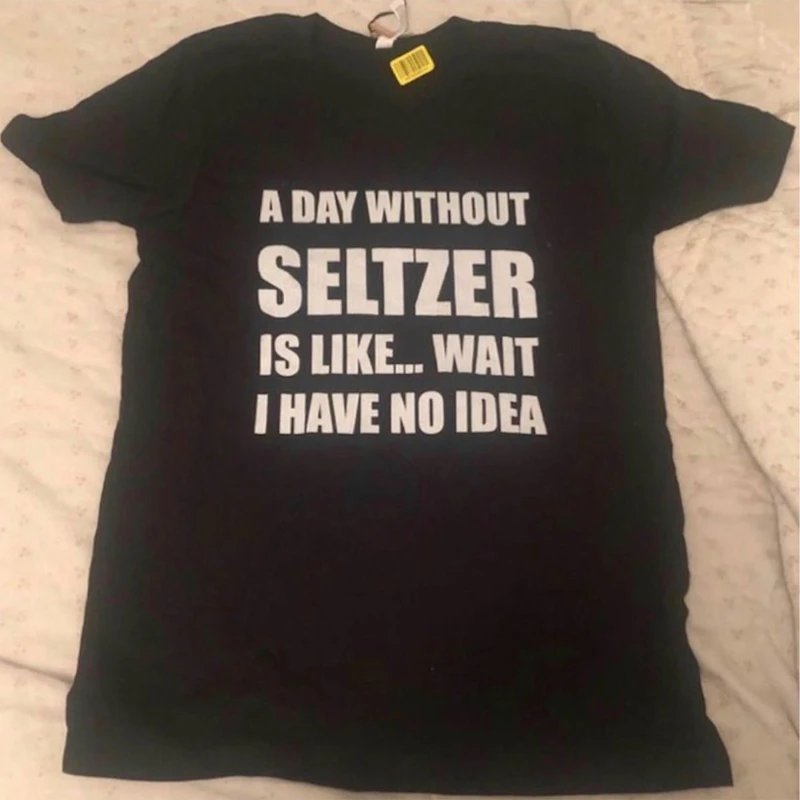
If you're sick of reading me write about music that sounds like this, I get it. I'm as vulnerable to nostalgia and the comfort of familiarity as anyone else, but I'm more interested in hearing music that sounds like now. Sacred Holes sounds like now. This is the solo project of Jonah Paz, one-half of that band ear who I can't stop writing about – because I think their music is the future. ear released their first song in November of 2024, but Sacred Holes has been dribbling music onto Soundcloud since 2022, back when Paz was still in high-school. His early stuff mostly consists of tossed-off DAW doodles: two second synth notes, nonsensical auto-tuned chirps, and some moderately competent ambient tracks, but very little actual songwriting.
Throughout 2025, Sacred Holes uploaded some tracks to Soundcloud that are actual songs people would want to listen to. Last week, he snatched five of them, titled the collection Genuine Uppers Life, and tossed the EP onto streaming services to give Sacred Holes its first wide-release project. ear are a twee band who clearly like weird internet music, but Genuine Uppers Life is just weird internet music. In "After Class," Paz mumbles like Jackzebra over a glitchy beat that never stops switching. "The Cyclone" samples Kesha's "Your Love Is My Drug" and Alex G's "Ain't It Easy," swirling them together like soft-serve twist into a confectionary jerk romp. These songs are skittish and whimsical, and also knowingly aloof in a private art school way (Paz goes to Bard, after all). But they're also addictively catchy in a way that makes them more clever than condescendingly esoteric. I wouldn't be surprised if one of them randomly blows up on streaming.
Playboi Carti, Ken Carson, Destroy Lonely, Homixide Gang, ApolloRed1 live @ PPG Paints Arena

I saw Playboi Carti the same week that rap music dropped out of the Top 40 for the first time in 35 years. That factoid reignited a years-long discourse about the waning presence of rap music in the mainstream, causing many to groan about rap's "death" in the same way people have been bemoaning rock's "death" for as long as I've been breathing. The degree to which rap's chart domination matters to the health of the genre is, of course, debatable, but the artform's drift from the center of mainstream American culture does beg the question: if rap's not there, then where is it?
Well, after seeing what I saw in Pittsburgh on November 1st, I'd say look wherever Playboi Carti is and you'll find rap music. Not just the fruits of one individual rapper, but an ecosystem of proteges, celebrity companions, and feral fans who orbit around Carti. The man who Kendrick Lamar, the most important capital-"R" Rapper of the last 15 years, dubbed his "evil twin" in a verse earlier this year. Who, in the last two years alone, has popped out on seismic hits with The Weeknd, Travis Scott, and Future. And whose 2025 album, MUSIC, made Billboard chart history when all 30 of its songs debuted in the Hot 100 simultaneously.
Carti has become an A-list rapper whose influence is still heard more in the underground than in the mainstream, which makes him an optimal barometer for measuring the contemporary rap climate. I've been a Carti diehard for nearly a decade, and I went into this show – my first time seeing him, somehow – with a pretty good idea of what I was in for. This tour, the Antagonist Tour, is a family affair that features Carti's Opium labelmates Ken Carson, Destroy Lonely, Homixide Gang, and ApolloRed1. I had seen Carson's own headlining show in Pittsburgh one year prior, and in many ways, this was just a bigger, better version of that show. An arena full of (mostly white, suburban) youths flocking to mosh and mouth along to a style of rap that's more about physical power than lyrical substance.
That said, a couple aspects of this Carti show did shock me. One was the near-uniformity of the audience's age. I'd say the average crowd member was 19 – a year or two older than the high-schoolers who occupied Carson's show in 2024, but thoroughly un-millennial. My 28-year-old friend and I spent the entire night scanning the room for a single millennial attendee who wasn't a parent chaperone. We didn't see one, and I'm not exaggerating. The youthfulness of Carti's fanbase is interesting to me because Carti ostensibly has – or at the very least had – fans who are in my age cohort. People who got into him via "Magnolia" or Die Lit (2018) when they were in college, and look back on that era of Soundcloud rap with a wistful fondness.
Clearly, those people don't care about Playboi Carti anymore – at least not enough to see him perform in Pittsburgh. That might be because Carti is no longer the same rapper he was then. The chameleonic artist changed his whole swag with 2020's Whole Lotta Red, adopting harder, more abrasive beats, a darker, more caustic flow, and an eviler, more theatrically sinister aura. Anecdotally speaking, a lot of Carti fans in my life couldn't comprehend the appeal of Whole Lotta Red, and the few that did seem to have fully fallen out of his fandom with MUSIC, Carti's bloated, celebrity-stuffed 2025 data dump that will, for all its flaws, still rank among my 10 favorite albums of the year. The highs are simply astounding, and Carti catered this tour setlist to those stratospheric heights. Numbing us with his narcotized bass and medicated growls until we, like him, were high enough to fall out of the sky unscathed.
Before Carti took us there, we were subjected to several aspiring demigods from the Opium underworld. ApolloRed1, an Atlanta artist signed to Carti's Young Vamp Life label (an imprint of Opium), played a 10-minute set that ignited the antsy floor and set the tone for most of the night. Bruising beats, repeated mosh calls, and a lot of heads nodding silently along to the Carti-lite fare. The critically un-acclaimed Opium duo Homixide Gang were slightly less anonymous due to the sheer anger in their whole ordeal: blood-splattered logos flashing on the screen, monstrously snarling deliveries, and lyrics like "we promotin' violence." I spent most of their set thinkin about how the novelty trap-metal of the late 2010s has been metabolized by mainstream audiences with the rise of Carti's rage-rap. It was kind of surreal watching an arena full of frat boys thrashing to beats that sounded like Carti-ized versions of what Ghostemane and City Morgue were rapping over in 2017.
Even so, it wasn't like Homixide Gang's presence would've been missed if they didn't show up. My seats, relatively close to the floor but high up enough to give me a solid view of the whole stage show, were surrounded by college and high-school age kids, and I used their reactions to gauge what the average Carti fan thinks of his Opium compatriots. Most everyone around me stayed seated for the first two and then rose to their feet when Destroy Lonely walked out, so I took that to mean his hype is building. Lonely's style is a little suaver, a little more Future-istically melodic than Carti and Ken Carson, but not by much. Although I liked his 2024 album way more than most critics, I thought his set was pretty uninspiring. The detail I most remember is the adolescent girl to my left singing loudly to whichever track he closed with, which was the first sing-along I heard all night.
Ken Carson, on the other hand, isn't just Opium runoff. He's a star of his own, and the crowd squealed ecstatically when the lights dimmed before his entrance. Every performer to this point in the night stood atop the two-story scaffolding and rapped down at the crowd as if they were yelling at passerby from the top of a skyscraper. On either side of the floor were two blacked-out pickup trucks surrounded by fencing, and back behind the stage scaffolding were an array of DJs, musicians, and posse members milling about while the rappers bleated into the strobe-stricken arena. Carson's set was the first of the night to feature flames shooting into the ceiling. He actually rapped less over his backing tracks than the three MCs who preceded him, but his intermittent scatting and ad-libbing had a powerful effect on the room. These were songs – "ss" and "Overseas" especially – that people truly wanted to hear.
After Carson's set, the house lights flipped back on and the changeover playlist resumed. I heard fakemink's "easter pink" transition into Kanye's "On Sight," a two-song representation of the rap spectrum Carti occupies in 2025. Down on the floor, smoke was billowing from the beds of those blacked-out pickup trucks, and a flash of familiar imagery triggered a memory. In June of 2020, I watched Black Lives Matter protestors light a cop car on fire directly outside of this very venue (to this day, I believe that it was an inside job to kneecap the protest). I remember feeling the heat on my palpitating chest and watching the black smoke rise and evaporate into the beating sunlight. At the Carti show, the fake smoke chugged stylistically into the arena in a banal, almost soothing manner. Nearly all of the fans in the room were children in 2020. Sometimes, it's hard to comprehend that what I saw that summer even happened, and then something as simple as a smoking car brings me back to those days of rage.
2020 was the darkest year of my generation's life, and one of the few silver linings was when Carti dropped Whole Lotta Red on Christmas eve. WLR was a record where Carti communed with darkness, harnessed darkness, danced with violence. He absorbed the atrocious vibes of a year spent indoors reading daily death counts and transposed that "new normal" – claustrophobic, paranoid, psychotic – into rap music. Lyrically, WLR said little to nothing about the political climate it emerged from, which is itself a statement about the culture that embraced it as a new rap paradigm. MUSIC arrived five years later, and once again, Carti reflected the vibes of the times in his songcraft. Since 2020, everyone has become more insane, reality has become less of a consensus, and rage has prevailed as our society's baseline temperament. MUSIC is obliterating, unwieldy, an industrial kitchen for frying synapses. It makes WLR sound quaint and logical.
Between WLR and MUSIC, Carti ventured so deep into darkness that he ended up finding brightness. You know when you close your eyes for long enough that you eventually begin to see formless beads of light and dancing shadows? That's what MUSIC, with its beaming white cover art, sounds and feels like. That's what this Carti show felt like. The first few songs were complete overstimulation. Militaristic strobes, blasts of fire, smoke shooting down from the ceiling and up from the floor, punks dancing on cars in the crowd, Carti's posse mobbing the scaffolding with bat-sized flashlights. And Carti, the lone man in white, stepping down onto the platform that rolled in on two semi-trucks while the beat for "Pop Out" rattled the venue's infrastructure.
I can't think of an album I love with more "skips" than MUSIC, a record I almost never listen to in order because every third track is tainted by a cornball feature. Fortunately, Carti knows which songs his fans want to hear in the live setting, and the first third of his set was just a wall of the hardest, hypest MUSIC bangers – including cuts like "Cocaine Nose" and "OPM Babi" that I didn't expect to hear. That version of Playboi Carti, the demon king of rage-rap, is who I assumed the arena paid to see. And they did. But I was surprised by how passionately people reacted to older tracks like "Long Time (Intro)" and "Location," given how virtually no one in the crowd actually lived through that era of Carti as an adult, and how different those songs sound compared to his 2020s fare.
Everything about Carti's set – the ostentatious production, his vampiric aura, the paint-stripping beats – was bracing in a way that concerts by artists as mainstream as Carti rarely are. At the same time, I couldn't help but notice how normal the whole spectacle was, from the normie audience to the comforting predictability of the beats to the child-safe mosh pits. When Die Lit dropped, it felt like Carti was injecting subculture – quirky voices, mind-melting beats, feral energy – into rap's above-ground. It felt like a revolution. Now, Carti's sound has literally become MUSIC. Drake is lifting his swag wholesale. Yeat has become a celebrity by doing "Carti, but make it white." And between Ken Carson, Destroy Lonely, Osamason, Che, 2hollis, and countless others, his minions are populating the nominal underground.
Carti's reach is all-encompassing, but he still remains the untouchable kingpin of rage. He can have five of his mini-me's open his show with faithful imitations of his own shit, and then pop out and smoke their sets, reducing their presences to feint memories at the end of the night. He can boastfully rap about thrashing, socking, and slapping the women he has sex with to an arena full of fans mere weeks after he was charged with assault after allegedly hitting his girlfriend and a limo driver (the latest in a long pattern of domestic violence) – and know that he'll get away with it. His fame excuses his most toxic, inexcusable flaws. His artistic influence ensures that his name and legacy will be enshrined in rap's DNA forever, the way that Kanye, despite all of the ways he's decimated his moral and artistic credibility, still remains a relevant touchstone.
In fact, Kanye's influence looms large over MUSIC – from the gospel intro of "Crash," to the Pablo-inspired rollout, to the extravagant fashion that's become such an integral part of Carti's artistic persona. Even the conclusion of Carti's show felt more like a Ye listening party than a musical performance. Carti ended his set with "Made It This Far," a leaked loosie where Carti interpolates his own verse on Kanye's Donda song "Off the Grid." The uncharacteristically subdued track (for those who miss the old Carti) pulsed through the arena while King Vamp and his Opium underlings casually trudged through the crowd until they reached that smoking pickup. Carti and Carson mounted the vehicle and leaned back on the hood while hordes of teens reached out for handshakes and record signings.
The song's dazed beat and bleary hook, "I can't believe we made it this far," played on loop while Carti scribbled in black ink on MUSIC's shiny white surface. All the kids in the arena, many of whom paid hundreds of dollars to be there, began casually filing toward the exits while the elderly ushers looked on relievedly. The twin semi trucks, the chassis that supported so much of the evening's chaos, rested peacefully while the house lights cast the whole room in the stale yellow of a high-school gym. "Everything gettin' bigger, shit don't make no sense," Carti's voice drawled in the final verse of "Made It This Far." The magnitude of his life has only grown since he rapped those words a half-decade ago, but at that moment, when Carti was down from the scaffolding and vulnerably surrounded on the same floor as his fans, his slim figure appeared smaller than ever. For a second, I couldn't believe it either.
-----------------------------------------------------------------------------------------
SEES00000 - If I Promise to Miss You, Will You Go Away
Shlohmo - Repulsor
deer park - Terra Infirma
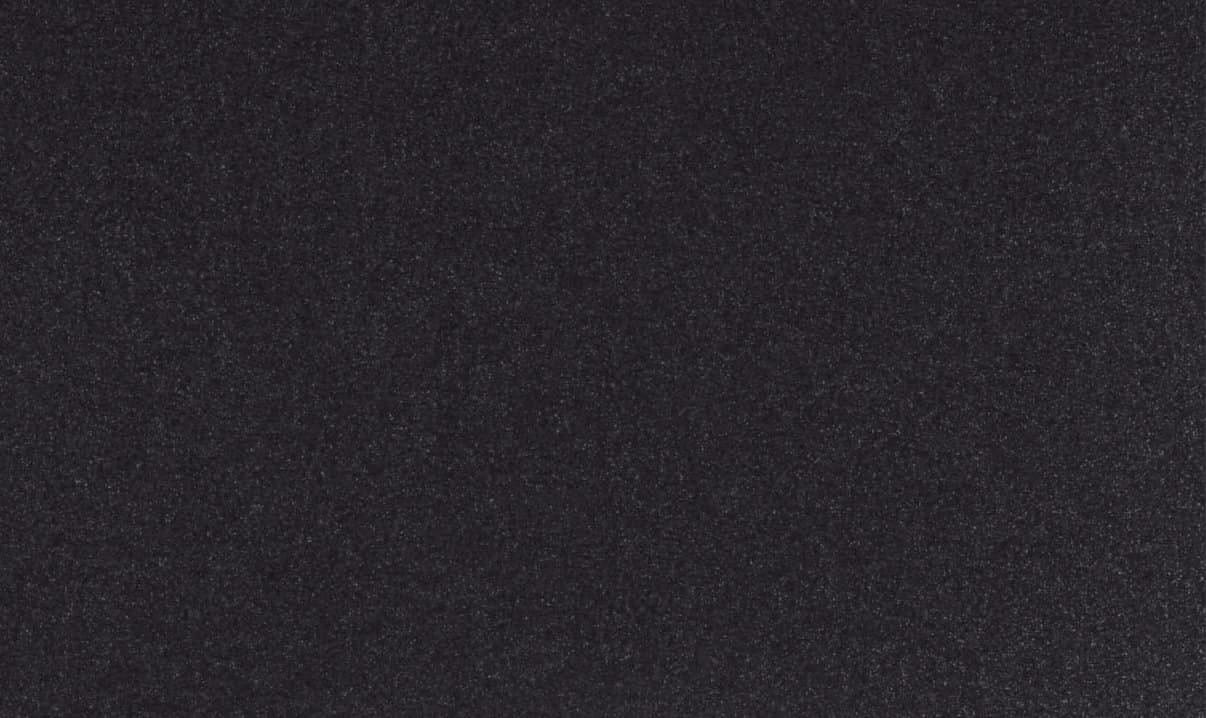
Chasing Down
DEVIN MCKNIGHT
of
Maneka, Speedy Ortiz, Grass Is Green
Chasing Down is a Q&A series with artists, friends, and others of good taste.
Maneka, the solo project of singer-songwriter Devin McKnight, released an album in 2019 that I liked quite a bit, and then I somehow missed his 2022 record, Dark Matters. McKnight signed to Topshelf for this year's bathes and listens, and I was reeled back into his listener base with the lead singles, "shallowing" and "dimelo," which are two of the best shoegazey songs of the year. The remainder of bathes and listens charts a much more dynamic course, winding through clomping slowcore, acoustic monologues, and sax-assisted art-rock that defies neat genre categorization. bathes and listens is a weird, personal, occasionally explosive record that sits refreshingly askew to indie-rock's current trend cycle. Don't let it pass you by.
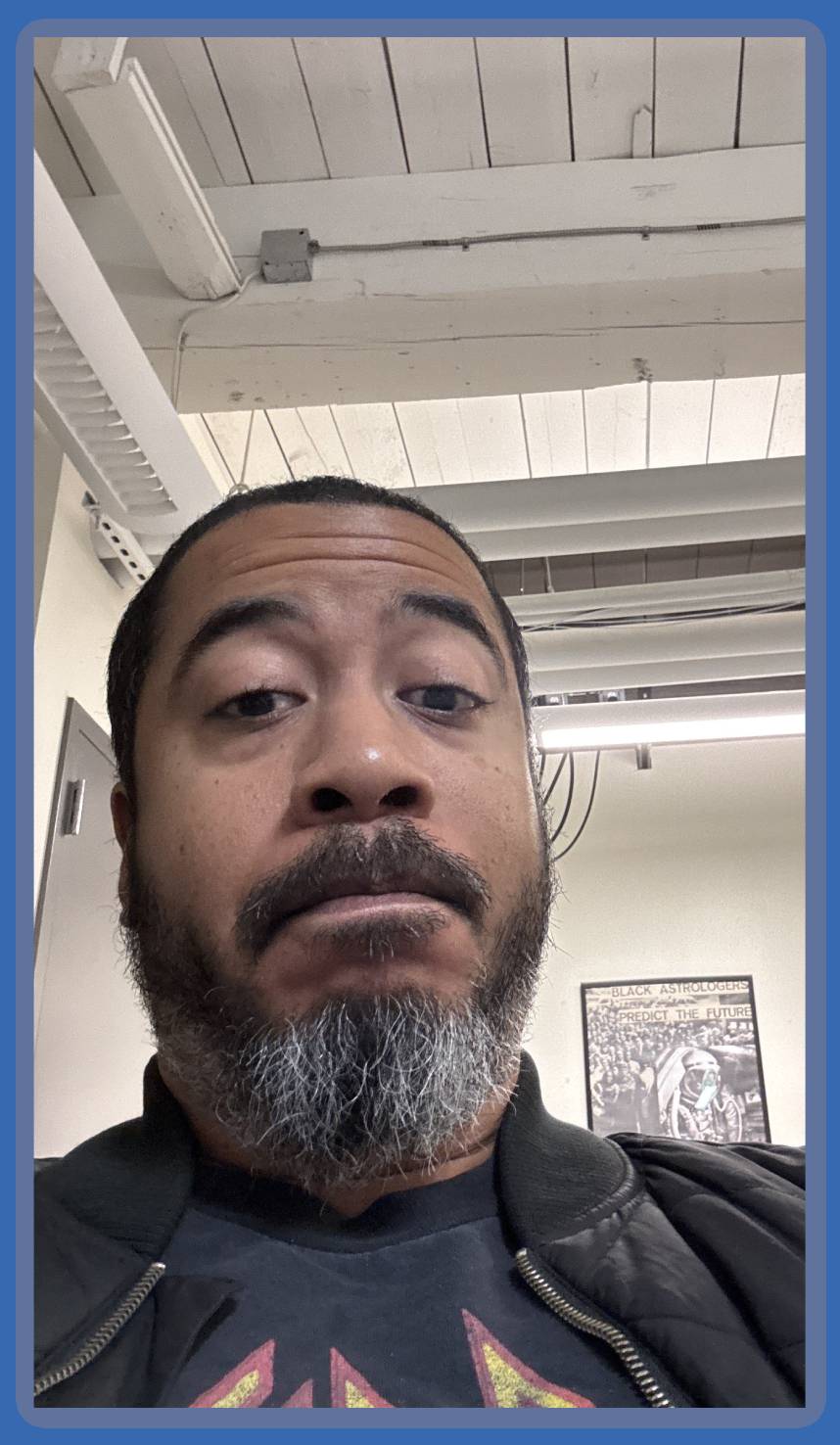
For this week's Chasing Down Q&A, I asked McKnight about vulnerability, high-school fights, slowcore, underrated bands, and more. Read the full interview below.
The lyrics of "the cry that came" are really interesting to me. Is that a true story about you being bullied and then kicking the bully's ass? Either way, why'd you feel compelled to write about that childhood experience all these years later?
Yeah it’s a true story. It was a hitting drill at football practice junior year of high school, where it was perfectly normal to assault someone. It being against someone I didn’t like was all the more [of an] incentive. We did this every day at practice, which looking back on it, knowing what we know now about head injuries, seems excessive. I think it was this way every practice from sixth to eleventh grade. I might have started reevaluating my feelings about the sport and violence in general as of late.
An ex of mine actually sort of called me out while I was telling this story to her saying she couldn’t tell if I was actually really into this kind of thing. I didn’t really know how to answer that at the time and I kind of retreated inward for a while to figure that out. What I ultimately came to was that reveling in that kind of aggression just feels weird to me now. And I can’t think of many scenarios in life where sprinkling some violence on it makes the situation improve. Having said that, I’m not saying I don’t watch the sport anymore, but I definitely have my limits.
The entirety of bathes and listens reads to me like a pretty vulnerable record. You're singing candidly about relationships and anger and stasis in various forms. In "yung yeller" you sing, "And I thought that there was nothing that could hurt me." Did you previously feel impervious to these types of feelings, and this record is your way of taking stock in all the ways you've been hurt/frustrated in recent years? I'm being interpretive here, but I'm really just curious to hear you talk about your life in relation to these lyrics.
I don’t think I ever felt impervious to feelings. I might not have always been willing to express them, though. Vulnerability isn’t usually a feeling that is rewarded in society especially when it comes to black men. Sometimes it almost feels easier to write about race or politics or the world outside of myself. But I’ve been to therapy on and off throughout adulthood and have a tight knit family, so it’s not like this is the only way I can express these things. Having said that, I do think that artistic expression is probably one of the healthier outlets available to a frustrated young adult, as long as it’s not punching down at anyone or harmful. 100 percent would recommend.
I think I would rather the listener be left speculating as you are here. If that’s how those lyrics make you feel then that’s perfectly valid. I think some sections of these songs were left intentionally vague lyrically so the listener could interpret it however they want. Maybe my little songs could help some poor sap out there not feel as alone even if they interpret it differently than I would. Maneka cares! I also noticed how a lot of my white colleagues seem to write songs about really anything and sometimes the lyrics barely make any sense yet are celebrated as visionaries. So if they can get away with it then why should it be any different for me?
